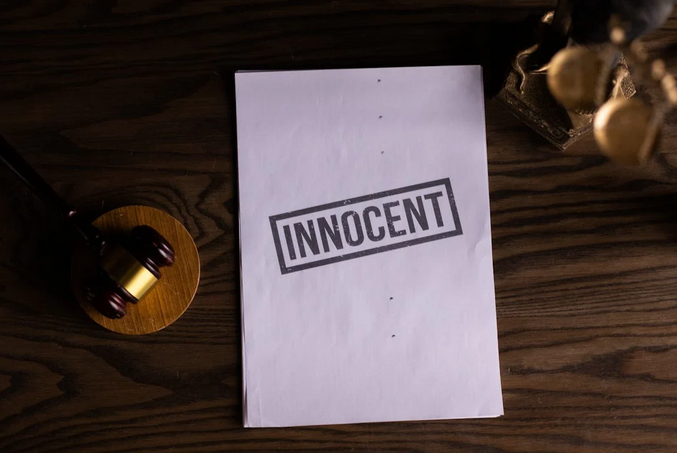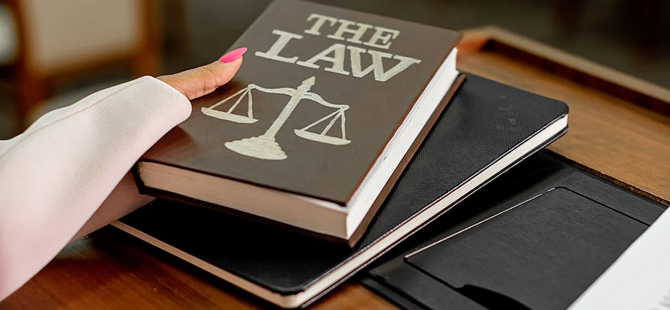Legal Myths Debunked: Surprising Misconceptions You Didn’t Know
Welcome to the world of law, where truth often dances with fiction. From courtroom dramas to sensational headlines, our understanding of legal matters is frequently muddled by myths and misconceptions. Have you ever believed that a verbal agreement holds no weight in court? Or did you think that everyone gets a “one phone call” after an arrest? If so, you’re not alone! In this eye-opening blog post, we’ll unravel some of the most surprising legal myths that have woven themselves into our collective consciousness. Get ready to challenge what you thought you knew about the law as we shine a light on these common fallacies and reveal the fascinating truths behind them. Buckle up—your perception of justice is about to get a major makeover.
You Don’t Always Have to Read the Fine Print
This one’s a classic, and many of us are guilty of it. You sign a contract or click “I agree” on an online service, and you don’t bother to read all the terms and conditions. But here’s the thing: in most legal cases, the fine print does matter. Ignoring it could lead to unexpected consequences—whether it’s an online service charging you more than you anticipated or being locked into an unfavorable contract.
While not every contract will have incredibly important clauses buried in the details, it’s always a good idea to at least skim the fine print. If you’re unsure about a contract, consulting with a lawyer can save you a lot of headaches in the long run.
You Don’t Need a Will If You’re Young or Healthy
Some people assume that wills are only for the elderly or the seriously ill, but this is a big misconception. No matter your age or health, having a will is important, especially if you have assets, dependents, or specific wishes for how things should be handled after you’re gone.
A will lets you dictate who inherits your property, names guardians for your children, and can even specify your healthcare wishes in case you’re unable to make decisions for yourself. Without one, the state will decide for you, which might not align with your preferences. So, even if you’re young and healthy, don’t skip out on making these important decisions.
You Have to Accept a Plea Bargain if Offered
If you’ve watched courtroom dramas, you’ve probably seen characters faced with the offer of a plea bargain—agreeing to plead guilty in exchange for a lesser sentence. Many people mistakenly believe that once a plea deal is on the table, you have to accept it. But that’s simply not true! You’re always allowed to reject a plea bargain and go to trial if you choose.
It’s important to know that a plea bargain can sometimes be in your best interest, but it’s not mandatory. If you’re ever in a legal situation like this, having an experienced criminal defense lawyer can help you understand your options and make the best decision for your case.

If You Don’t Call the Police After an Accident, You Can’t Sue
It’s easy to assume that you can’t take legal action after an accident if you didn’t call the police at the scene. While calling the authorities is always a good idea, especially for documentation purposes, not doing so doesn’t automatically eliminate your right to sue.
The truth is, that many car accident lawsuits are based on evidence, witness testimony, and expert analysis—not just a police report. While a police report can help strengthen your case, you can still pursue legal action without one. If you’re involved in an accident and it’s safe to do so, gather as much information as possible, such as taking pictures and getting witness contact details.
You Own Everything in Your Backyard (or Property)
A lot of people mistakenly believe that everything in their backyard is theirs to do as they please—whether it’s cutting down a tree, digging up the land, or building a new structure. In reality, property laws can be much more complicated. There are things like easements, zoning laws, and shared property rights that could affect what you can and cannot do on your land.
For instance, if your property is in a homeowners’ association (HOA) area, there may be restrictions on what you can build or alter. Additionally, if you share a boundary with a neighbor, certain structures or modifications might require their approval or need to meet local government regulations. Always check with your local laws or an attorney before making big changes to your property.
Verbal Agreements Aren’t Legally Binding
This one might come as a surprise, but verbal agreements can be legally binding in certain circumstances. While written contracts are usually better for ensuring clarity and enforceability, a spoken agreement can hold weight in a court of law if the terms can be proven. For example, if you agree to sell a used car to a friend over the phone, and they later back out, you may have a case if you can show the agreement was made (through text messages, emails, or witnesses). However, proving the terms of a verbal agreement can be more challenging than a written one, which is why it’s generally better to get everything in writing.
Legal misconceptions are more common than you might think, and believing in them can sometimes lead to confusion, missed opportunities, or unnecessary legal troubles. The key to protecting your rights is staying informed and seeking professional legal help when needed. By understanding the facts and getting the right advice, you can avoid costly mistakes and ensure you’re making the best decisions for your future. So, next time you’re unsure about a legal issue, remember: don’t believe everything you hear.

